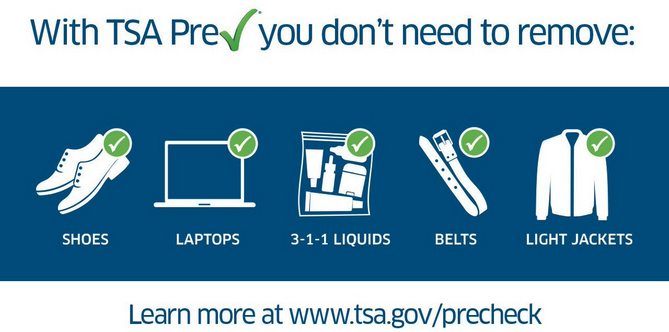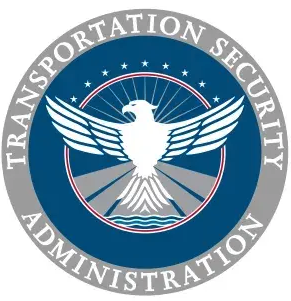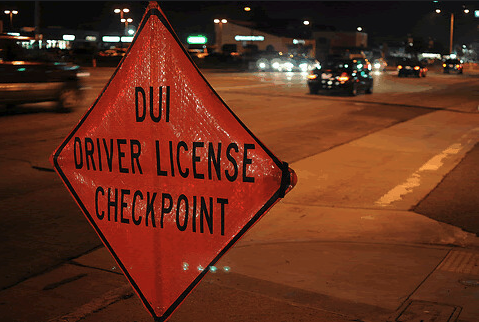According to the National Highway Traffic Safety Administration (NHTSA), about 1.5 million people are arrested in any given year for driving under the influence of alcohol or drugs. That means that one out of every 121 licensed drivers were arrested for drunk driving. From NHTSA:
Every day, about 37 people in the United States die in drunk-driving crashes – that’s one person every 39 minutes. In 2022, 13,524 people died in alcohol-impaired driving deaths. These deaths were all preventable.
Even though it’s a serious crime with severe penalties, drunk driving continues to be a problem throughout the United States. This leads to the question…
Can you get TSA PreCheck if you have a DUI on your record?

With DUIs being so unfortunately prevalent in our country, we’ve discussed them in relation to travel a couple of times on YMMV:
As for getting TSA PreCheck if you have a DUI on your record, the simple answer is “Maybe. It depends.”
The TSA’s official disqualifications

The TSA PreCheck program, of course, does a background check on all applicants. Their process includes looking at local, state and federal databases and checking applicants against the no-fly list, criminal records and other potentially relevant sources of information. Applicants must also submit fingerprints so that an FBI screening can be done.
In the end, the program only permits eligible ” low-risk” travelers to enjoy expedited security screening at airports. If you have a history with the law, whether or not you’re considered “low risk” or eventually can be considered such depends on when you got into trouble with the law and for what.
Permanent disqualifications
According to this page of TSA.gov, you are permanently disqualified from PreCheck if you have any of the following offenses:
- Espionage or conspiracy to commit espionage.
- Sedition or conspiracy to commit sedition.
- Treason or conspiracy to commit treason.
- A federal crime of terrorism as defined in 18 U.S.C. 2332b(g), or comparable State law, or conspiracy to commit such crime.
- A crime involving a TSI (transportation security incident). Note: A transportation security incident is a security incident resulting in a significant loss of life, environmental damage, transportation system disruption, or economic disruption in a particular area, as defined in 46 U.S.C. 70101. The term “economic disruption” does not include a work stoppage or other employee-related action not related to terrorism and resulting from an employer-employee dispute.
- Improper transportation of a hazardous material under 49 U.S.C. 5124 or a comparable state law.
- Unlawful possession, use, sale, distribution, manufacture, purchase, receipt, transfer, shipping, transporting, import, export, storage of, or dealing in an explosive or explosive device. An explosive or explosive device includes an explosive or explosive material as defined in 18 U.S.C. 232(5), 841(c) through 841(f), and 844(j); and a destructive device, as defined in 18 U.S.C. 921(a)(4) and 26 U.S.C. 5845(f).
- Murder.
- Threat or maliciously conveying false information knowing the same to be false, concerning the deliverance, placement, or detonation of an explosive or other lethal device in or against a place of public use, a state or government facility, a public transportations system, or an infrastructure facility.
- Violations of the Racketeer Influenced and Corrupt Organizations Act, 18 U.S.C. 1961, et seq., or a comparable State law, where one of the predicate acts found by a jury or admitted by the defendant, consists of one of the permanently disqualifying crimes.
- Attempt to commit the crimes in items (1)-(4) of this section.
- Conspiracy or attempt to commit the crimes in items (5)-(10) of this section.
Interim disqualifications
Or you may only have interim disqualification from PreCheck, and then you may be eligible after a certain amount of years. Also from TSA:
Conviction for one of the following felonies is disqualifying if the applicant was convicted, pled guilty (including ‘no contest’), or found not guilty by reason of insanity within seven years of the date of the application; OR if the applicant was released from incarceration after conviction within five years of the date of the application.
- Unlawful possession, use, sale, manufacture, purchase, distribution, receipt, transfer, shipping, transporting, delivery, import, export of, or dealing in a firearm or other weapon. A firearm or other weapon includes, but is not limited to, firearms as defined in 18 U.S.C. 921(a)(3) or 26 U.S.C. 5 845(a), or items contained on the U.S. Munitions Import List at 27 CFR 447.21.
- Extortion.
- Dishonesty, fraud, or misrepresentation, including identity fraud and money laundering, where the money laundering is related to a crime listed in Parts A or B (except welfare fraud and passing bad checks).
- Bribery.
- Smuggling.
- Immigration violations.
- Distribution, possession w/ intent to distribute, or importation of a controlled substance.
- Arson.
- Kidnapping or hostage taking.
- Rape or aggravated sexual abuse.
- Assault with intent to kill.
- Robbery.
- Fraudulent entry into a seaport as described in 18 U.S.C. 1036, or a comparable State law.
- Violations of the Racketeer Influenced and Corrupt Organizations Act under 18 U.S.C. 1961, et seq., or a comparable state law, other than any permanently disqualifying offenses.
- Voluntary manslaughter.
- Conspiracy or attempt to commit crimes in this section.
A person will also be disqualified if they’re wanted or under indictment in any civilian or military jurisdiction for a felony listed above, until the want or warrant is released or the indictment is dismissed.
What about DUI?

PC: 911 Bail Bonds Las Vegas / flickr / CC BY-ND 2.0
But for DUI? The TSA doesn’t mention it. That doesn’t mean it doesn’t count. Even if it’s not documented in their rules, approval for the program is still at the agency’s discretion.
With that, anecdotal evidence suggests that if you have been convicted of or pleaded guilty to a misdemeanor or felony DUI within the past 10 years, you probably won’t be approved for TSA PreCheck status. If it’s been more than 10 years, you might.
Because the TSA website isn’t super specific about how an applicant qualifies (or not) for the PreCheck program, the TSA customer service line is available for questions. Their number is (866) 289-9673.
If you’ve applied for TSA PreCheck and received a Preliminary Determination of Ineligibility, the notification they send should explain the basis for the ineligibility determination. You do have the right to appeal the TSA’s determination, and it would make sense to do so if you think they’ve made a mistake (i.e., you had a DUI, but it was 14 years ago, you were initially convicted due to your DUI, but it was dismissed, etc.) If you decide to go that route, consider hiring a TSA PreCheck appeal lawyer.
Good luck!
Feature Photo: Drunk driving (cropped) by Nick Youngson CC BY-SA 3.0 Pix4free
Want to comment on this post? Great! Read this first to help ensure it gets approved.
Want to sponsor a post, write something for Your Mileage May Vary or put ads on our site? Click here for more info.
Like this post? Please share it! We have plenty more just like it and would love it if you decided to hang around and sign up to get emailed notifications of when we post.
Whether you’ve read our articles before or this is the first time you’re stopping by, we’re really glad you’re here and hope you come back to visit again!
This post first appeared on Your Mileage May Vary
